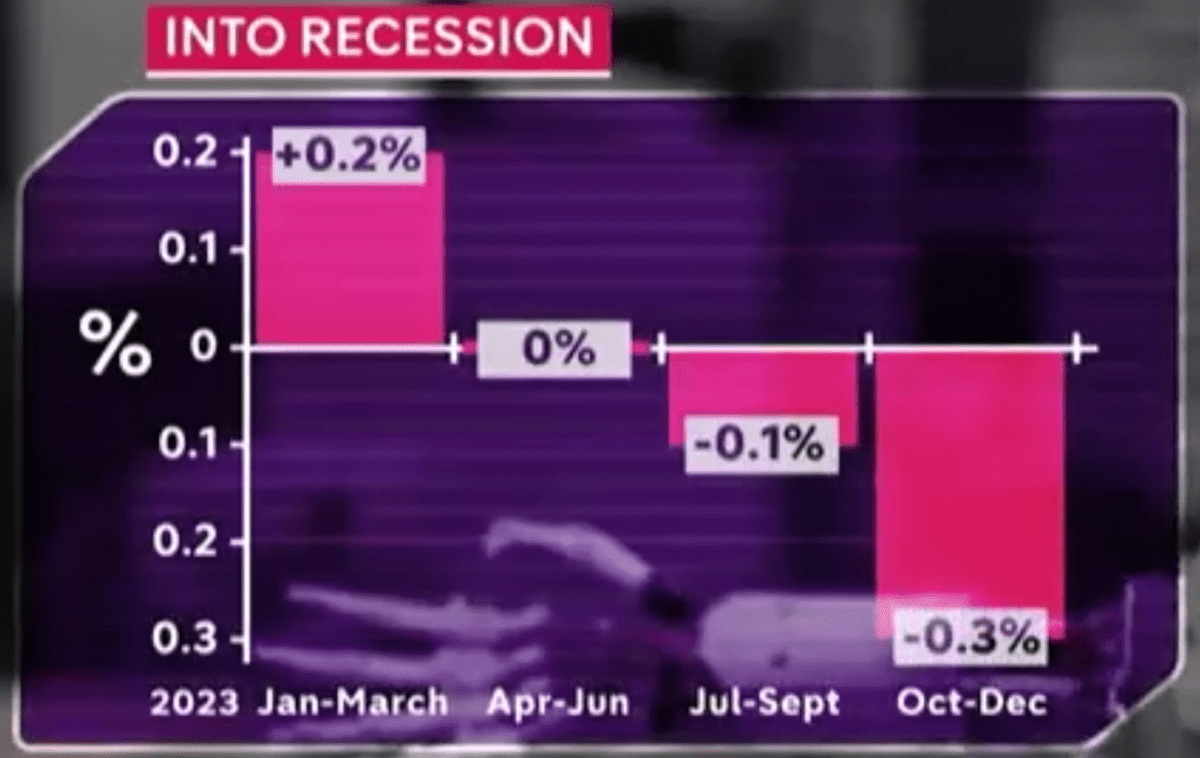UK Economy Falls into Recession: How African Agriculture will be Impacted

The UK economy officially entered a recession in the second half of 2023, as defined by two consecutive quarters of negative GDP growth. The final quarter of 2023 saw a contraction of 0.3%, exceeding most predictions. Several factors contributed to the recession, including (1) high inflation caused by rising energy and food prices, which have placed immense pressure on households and businesses; (2) interest rate hikes as a consequence of the actions of the Bank of England to combat inflation, but this also dampened economic activity; and (3) a global economic slowdown, further impacting the UK’s export-oriented sectors.
The recession is already having a noticeable impact on the UK, with job losses as businesses are cutting costs and hiring freezes becoming more common. There is also reduced consumer spending due to rising costs and economic uncertainty, as well as lower living standards since many people are struggling to afford basic necessities due to inflation.
With the winds of change blowing across the global economy, many in the agricultural sector, particularly in Africa, are understandably concerned. While the UK’s economic woes might seem distant, the interconnectedness of our world means the ripples will be felt far and wide. This is because the UK is a major buyer of Africa’s horticultural products, tea, coffee, among others. Reduced demand for exports, potential trade disruptions, and tighter investment belts—these are just some of the challenges African agriculture might face.
Will farmers’ hard work, sweat, and hope be swept away in this economic storm?
Imagine the sting of sunburnt shoulders after a long day on the farm. The calloused hands, the grit on a farmer’s boots, the quiet satisfaction of watching life burst from the earth! That’s the heartbeat of African agriculture, a rhythm that’s about so much more than just crops. It’s about families, communities, and the very foundation of life on this continent.
The UK might be tightening its belt, but the world is a vast and hungry place. For Africa, it’s time to explore new trade routes and chart new courses. Here’s the thing: Africa has weathered storms before, and it’ll weather this one too. For Africa, this is not a time for despair, but for strategic thinking and proactive measures that turn challenges into opportunities. The continent majorly relies on farmers, after all, and adaptability is in their blood—farming is their business!
ALSO READ: 8 Macro Trends that will influence Africa’s Agriculture in 2024
Future outlook
It’s important to note that the exact impact of the UK recession on global markets and African agriculture is difficult to predict, as it depends on several factors like the severity and duration of the recession, government interventions, and global economic trends. It is important to note that the severity and duration of the UK recession are still unclear. Some economists believe it will be short-lived, while others predict a more prolonged downturn. The UK government is already implementing various measures to mitigate the impact, but the ultimate outcome will depend on a complex interplay of domestic and global factors.
Turning challenges into opportunities
The impact of the UK’s recession might be unevenly distributed across different regions and sectors in Africa, and some African countries might even benefit from opportunities arising from the changing global economic landscape. The UK recession might cast a shadow, but for African agriculture, it can also be an opportunity to reimagine, reshape, and emerge stronger. By working together, embracing innovation, and fostering resilience, African countries can navigate these uncertain waters and achieve economic gains. This can only happen by being nimble and embracing new technologies, digging into data-driven solutions, and finding smarter ways to farm. Who knows, maybe Africa will even discover a hidden gem that will become the next revolutionary agricultural technique!
In order to thrive, Africa must chin up and face the future with the same determination that pushes its farmers out into the fields each morning, the same hope that sees a tiny seed transform into a life-giving fruit.



